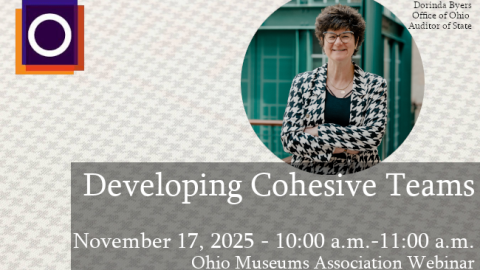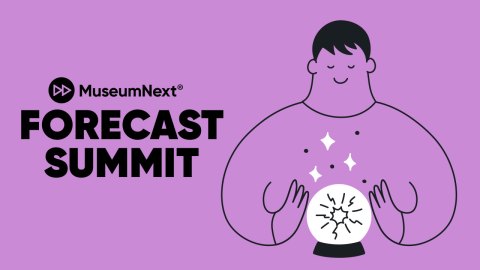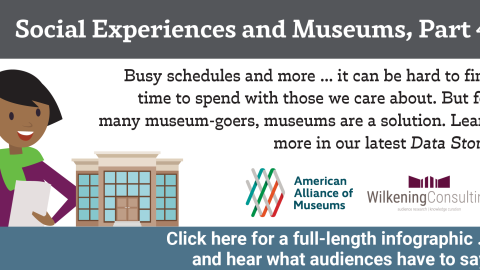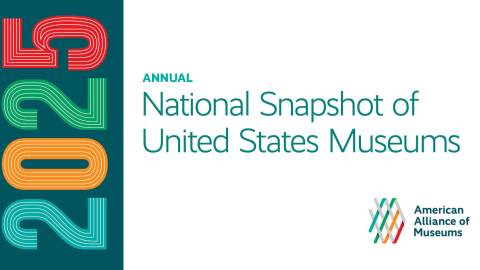For Immediate Release
March 19, 2020
Arlington, VA-The American Alliance of Museums (AAM), the only organization representing the entire scope of the museum community, urges the U.S. Congress to include at least $4 billion for nonprofit museums in COVID-19 (coronavirus) economic relief legislation to provide emergency assistance through June. In addition, AAM urges Congress to adopt a temporary “universal charitable deduction” to help incentivize charitable giving which is expected to decline in the months ahead. The full letter is available here.
Nationwide, our museums are losing at least $33 million a day due to closures as a result of COVID-19 and will be in desperate need of significant federal support to maintain jobs, secure our cultural heritage, help to rebuild our nation’s tourism industry – and simply to survive the months to come.
Economic impact data compiled by AAM and Oxford Economics shows museums contribute $50 billion a year to the U.S. economy; support 726,000 jobs annually; and generate $12 billion in tax revenue to local, state, and federal governments. Museums are economic engines and play an essential role in the nation’s educational infrastructure, spending more than $2 billion a year on education.
Museums are also the most trusted source of information in America, rated higher than local papers, nonprofit researchers, the U.S. government, or academic researchers. “Museums can leverage this high level of public trust to provide education on COVID-19 and fight misinformation about its spread,” said Laura Lott, President and CEO of AAM. “By empowering the public with the information they need to lower their risk of contracting or spreading disease, museums can help sustain healthy communities, maintain calm, and reduce the chances for an increase in discrimination or xenophobia often created by global diseases.”
The impacts of COVID-19 on the museum field are devastating. Museums of all sizes are experiencing closures, attendance free-fall, canceled events, and layoffs. Declines in international and domestic tourism, declines in local attendance, and increases in social distancing are having a devastating impact on the nonprofit museum community, which operates on thin margins of financial sustainability. AAM estimates as many as 30% of museums, mostly in small and rural communities, will not re-open without significant and immediate emergency financial assistance.
Initial furloughs and layoffs among museum personnel have already begun this week. There are field-wide concerns about large-scale layoffs, especially for the lowest paid and hourly staff as they will potentially be hit the hardest. Over and above losses in earned revenue and unremitted expenses, museums are expecting lost charitable contributions as donors reassess their capacity to give due to the stock market’s volatility. Congress should ensure communities are able to support their local museums and all nonprofits during this crisis by enacting a targeted, temporary giving incentive that enables all Americans to receive a tax incentive for giving to the work of museums, and all charitable nonprofits, responding to, or suffering from, the COVID-19 pandemic.
Even now, while museums are experiencing closures and significant losses in revenue, and planning for staff reductions, they are still serving their communities across the country by providing lesson plans, online learning opportunities, and “drop-off” learning kits to teachers and parents in areas where schools have closed; freely sharing virtual exhibitions and content accessible to those who are otherwise isolated; maintaining their outdoor spaces to provide quiet places to relieve stress during this time of high anxiety; and supporting the families of health care workers and first responders with access to child care and meals.
Museums are community anchors, addressing challenges in times of crisis like the one we are currently experiencing. Unfortunately, the Alliance expects hardships to be faced by an increasing number of museums in communities spread across the country in the months ahead, underscoring the need for museums to be included in any economic stimulus relief now.
About the American Alliance of Museums
The American Alliance of Museums has been bringing museums together since 1906, helping to develop standards and best practices, gathering and sharing knowledge, and providing advocacy on issues of concern to the entire museum community. Representing more than 35,000 individual museum professionals and volunteers, institutions, and corporate partners serving the museum field, the Alliance stands for the broad scope of the museum community. For more information, visit www.aam-us.org.
###
Press Contact:
Natanya Khashan








